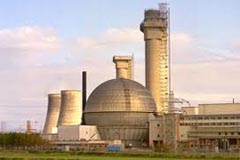SOUTH Down MP Margaret Ritchie has raised a number 0f parliamentary questions concerning nuclear policy in the UK Department of Energy and Climate Change and she claims they “show the folly of the UK’s future nuclear programme”.
In the event of a serious nuclear incident, Belfast and County Down is only around 60 miles from Cumbria in the North West of England where Sellafield is located.
Speaking after studying the answers to her questions Ms Ritchie said: “These figures reveal the true legacy of the nuclear industry, and suggest that it would be madness to expose another generation of taxpayers to this toxic legacy.

“The answers from the Department of Energy and Climate Change reveal yet another increase in the expected cost of decommissioning which now stands at £3bn a year, representing over half of the Department’s total budget and puts the total cost at a staggering £36.6billion.
“Furthermore, the UK government have recognised that the recent National Audit Office report details the severe challenges facing the project and the admission that thus far ‘performance of some of the major projects at Sellafield has been poor’ comes as no surprise. I await the government’s full response to this report and will be seeking assurances that they fully address all safety concerns that are identified.
” My parliamentary questions revealed that there have been some 24 reported safety incidents at Sellafield this year in 2012, over two a month. Despite assurances that these were minor breaches there is a lack of detail on the exact nature of the incidents which worryingly included a loss of electricity and the seemingly improper handling of site material. It must also be recognised that the authorities can never guarantee that a future incident will not be more serious. The stakes are so high with nuclear waste that just one incident could be catastrophic.
“We need to move away from the nuclear legacy toward a truly sustainable and truly renewable energy future. The recent Energy Bill provided just such an opportunity but instead the Government passed up the chance to include a binding 2030 decarbonisation target and left the door open to another round of nuclear subsidies.”
























